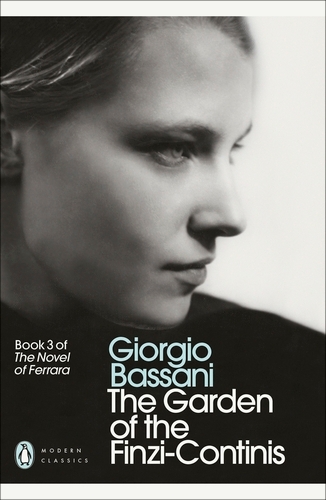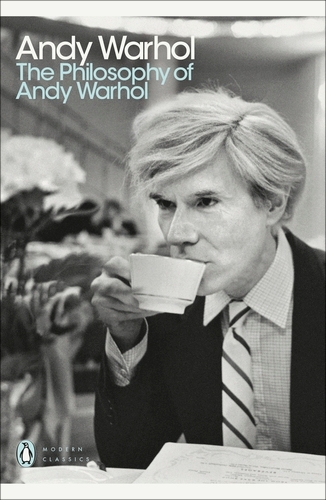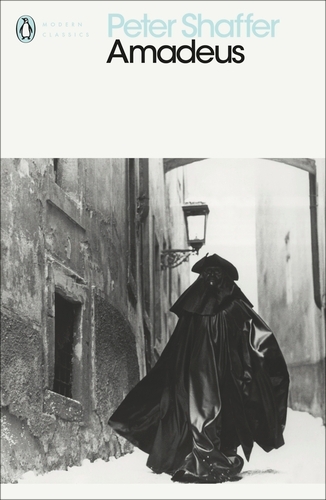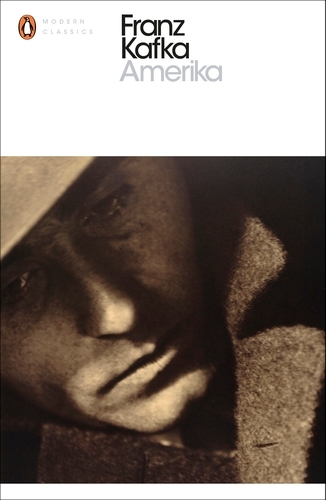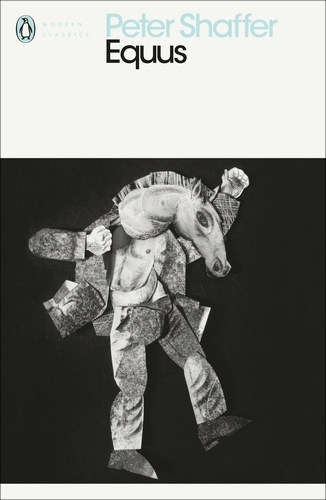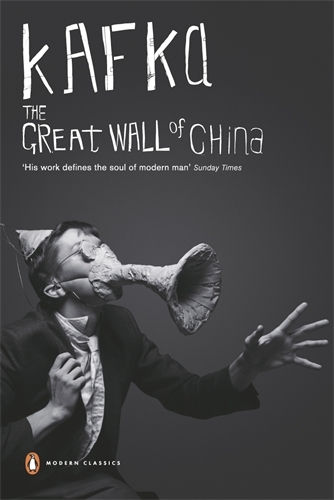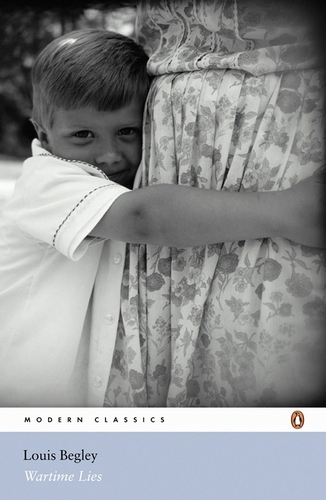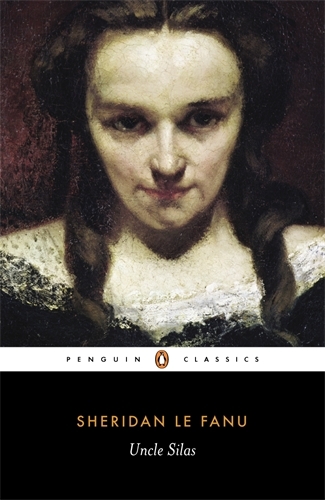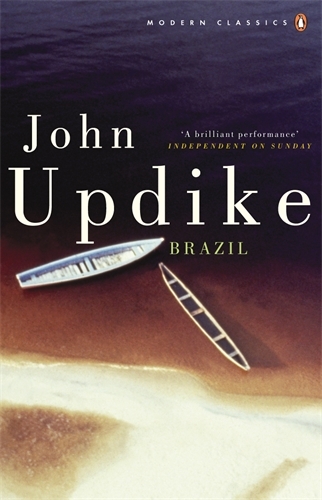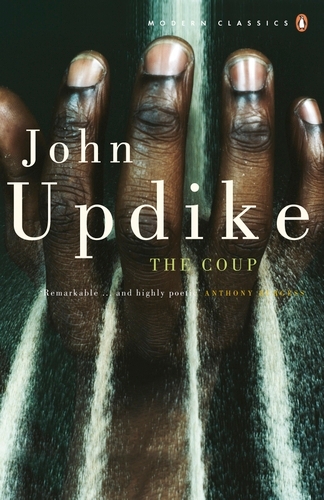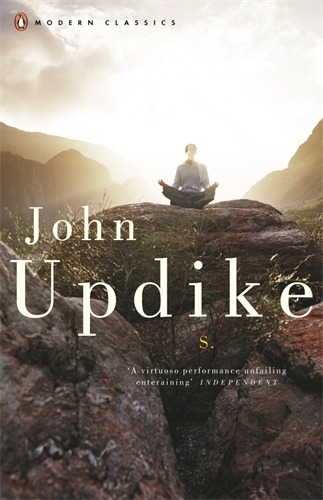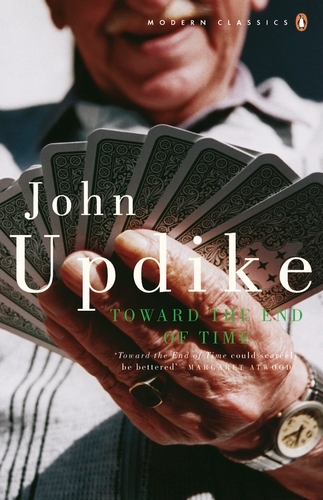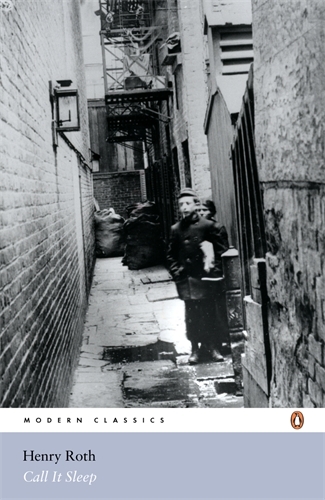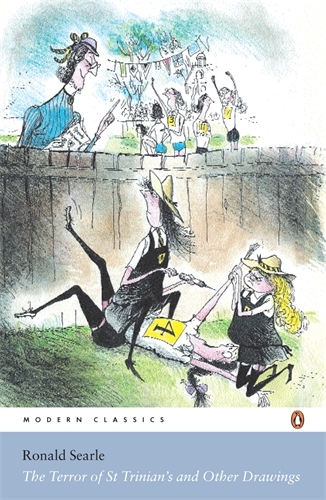Penguin Modern Classics
1281 books in this series
The Garden of the Finzi-Continis
This is a haunting, elegiac novel which captures the mood and atmosphere of Italy (and in particular Ferrara) in the last summers of the thirties, focusing on an aristocratic Jewish family moving imperceptibly towards its doom. Vittorio De Sica turned the book into a film in 1970, winning the Academy Award for Best Foreign Language Film in 1974.
The Philosophy of Andy Warhol
In his autobiography, published in 1975, the private Andy Warhol talks about love, sex, food, beauty, fame, work, money, success; about New York and America; about himself - his childhood in McKeesport, Pennsylvania, good times and bad times in the Big Apple, the explosion of his career in the Sixties, and life among celebrities.
Amadeus
Wolfgang Amadeus Mozart is a genius, the most brilliant musician the world will ever see. But the court of eighteenth-century Vienna doesn’t recognize his talents - only Antonio Salieri, the Court Composer, does, and he is tortured by what he hears. Seething with rage at the genius of this flippant buffoon and suddenly aware of his own mediocrity, Salieri declares war and sets out to destroy the man he sees as God’s instrument on earth. Peter Shaffer’s award-winning play is a rich, exuberant portrayal of a God-like man among mortals, and lives destroyed by envy.
Amerika
Karl Rossman has been banished by his parents to America, following a family scandal. There, with unquenchable optimism, he throws himself into the strange experiences that lie before him as he slowly makes his way into the interior of the great continent.
Although Kafka's first novel (begun in 1911 and never finished), can be read as a menacing allegory of modern life, it is also infused with a quite un-Kafkaesque blitheness and sunniness, brought to life in this lyrical translation that returns to the original manuscript of the book.
Although Kafka's first novel (begun in 1911 and never finished), can be read as a menacing allegory of modern life, it is also infused with a quite un-Kafkaesque blitheness and sunniness, brought to life in this lyrical translation that returns to the original manuscript of the book.
Equus
When a deranged boy, Alan Strang, blinds six horses with a metal spike he is sentenced to psychiatric treatment. Dr Dysart is the man given the task of uncovering what happened the night Strang committed his crime, but in doing so will open up his own wounds. For Dysart struggles to define sanity, and justify his marriage, his career, and his life of normality; ultimately he must ask himself: is it patient or psychiatrist whose life is being laid bare? The most shocking play of its day, Equus uses an act of violence to explore faith, insanity and how the materialism of modern life can destroy humanity’s capacity for pain and passion.
The Great Wall of China
Drawing directly on original manuscripts, this collection comprises the major short stories published after Kafka’s death. It includes The Great Wall of China, Blumfeld, An Elderly Bachelor, Investigations of a Dog and his great sequences of aphorisms, with fables and parables on subjects ranging from the legend of Prometheus to the Tower of Babel. Allegorical, disturbing and possessing a dream-like clarity, these writings are quintessential Kafka.
The Royal Hunt of the Sun
In the rich, humid air of sixteenth-century Peru, Atahuallpa, the Sun-God King, meets Pizarro the Conquistador, representative of the Spanish Empire at its most insatiable. While the Inca King is convinced of his own immortality, the Spaniard is cynical and greedy, leading to a collision of power and authority. Soon both men are locked in a struggle for survival; one of them must die and the survivor must face mortality, and the terrible truth of the world he lives in. Moving and atmospheric, The Royal Hunt of the Sun is an unforgettable drama of pride, empire and the conquest of bodies and souls.
Wartime Lies
Poland, 1939. The comfortable, secure world of assimilated Jews is blown away by the invasion of the Third Reich. Maciek's father disappears into the war's vortex, leaving the orphaned child with his acerbic and beautiful Aunt Tania. It is her cool inventiveness, in their dramatic flight through a landscape of oppression, that will ensure their fragile survival.
Uncle Silas
One of the most significant and intriguing Gothic novels of the Victorian period and is enjoyed today as a modern psychological thriller. In UNCLE SILAS (1864) Le Fanu brought up to date Mrs Radcliffe's earlier tales of virtue imprisoned and menacedby unscrupulous schemers. The narrator, Maud Ruthyn, is a 17 year old orphan left in the care of her fearful uncle, Silas. Together with his boorish son and a sinister French governess, Silas plots to kill Maud and claim her fortune. The novel established Le Fanu as a master of horror fiction.
Homo Faber
The novel tells the story of a middle-class UNESCO engineer called Walter Faber, who believes in rational, calculated world. Strange events undermine his security - an emergency landing in a Mexican desert against all odds, his friend Joachim hangs himself in the Mexican jungle, and he falls in love with a woman who dies of a concussion, he has an incestuous affair. Finally Faber becomes ill with stomach cancer, but it is too late for him to change his life.
Brazil
Tristao Raposo, a nineteen-year old black child of the Rio slums, spies Isabel Leme, an eighteen-year-old upper-class white girl, across the hot sands of Copacabana Neach, and presents her with a ring. Their flight into marriage takes them from urban banality to the farthest reaches of Brazil's wild west....
The Coup
Nothing in his previous life could have prepared Colonel Hakim Felix Ellellou for his new role as the President of Kush. Neither the French army nor his American university provided a grounding in the subtle skills of revolutionary dictatorship. Still less did they expect him to acquire four wives...
S.
In a moment of sudden inspiration Sarah Worth - S. - has walked out on her husband to join the Ashram Arhat. Famous for his transcendent wisdom and divine immobility, the Arhat has transferred his ahram from India to Arizona, where he and his enthusiastic entourage are attempting to make the desert fruitful.
Toward the End of Time
Ben Turnbull is a 66 year-old retired investment consultant living north of Boston in the year 2020. A recent war between the United States and China has thinned the population and brought social chaos. Nevertheless, Ben's life, traced by his journal entries over the course of the year, retains much of its accustomed comforts. Something of a science buff, he finds his personal history cuaght up in the dysjunctions and vagaries of the 'many universes'; his identity branches into variants extending back through history and ahead in the evolution of the universe, as both it and his own mortal, nature-shrouded existence move toward the end of time ...
Call it Sleep
David Schearl arrives in New York in his mother's arms to begin his new life as an immigrant in the 'Golden Land'. David is hated by his father - an angry, violent man unable to find his niche in the New World - but is fiercely loved and protected by his Yiddish-speaking mother. An innovative, multi-lingual novel, Call It Sleep subtly interweaves the overwhelming love between a mother and son with the terrors and anxieties David experiences, as he seeks to find his own identity amidst the cultural disarray of early twentieth-century America.
The Terror of St Trinian's and Other Drawings
Ronald Searle takes us back to the world of the Gothic Public School in The Terror of St Trinian's. In this gloriously anarchic academy for young ladies we witness shootings, knifings, torture and witchcraft, as well as many maidenly arts. The subject of many evergreen films, St Trinian's is synonymous with the sort of outrageous behaviour that would make a convict blench. This book also contains a selection of Ronald Searle's work from the non-school books, including The Rake's Progress, Souls in Torment and Merry England, etc. and their publication in one volumes stakes Searle's claim to be the greatest and most influential English satirist since the war.
